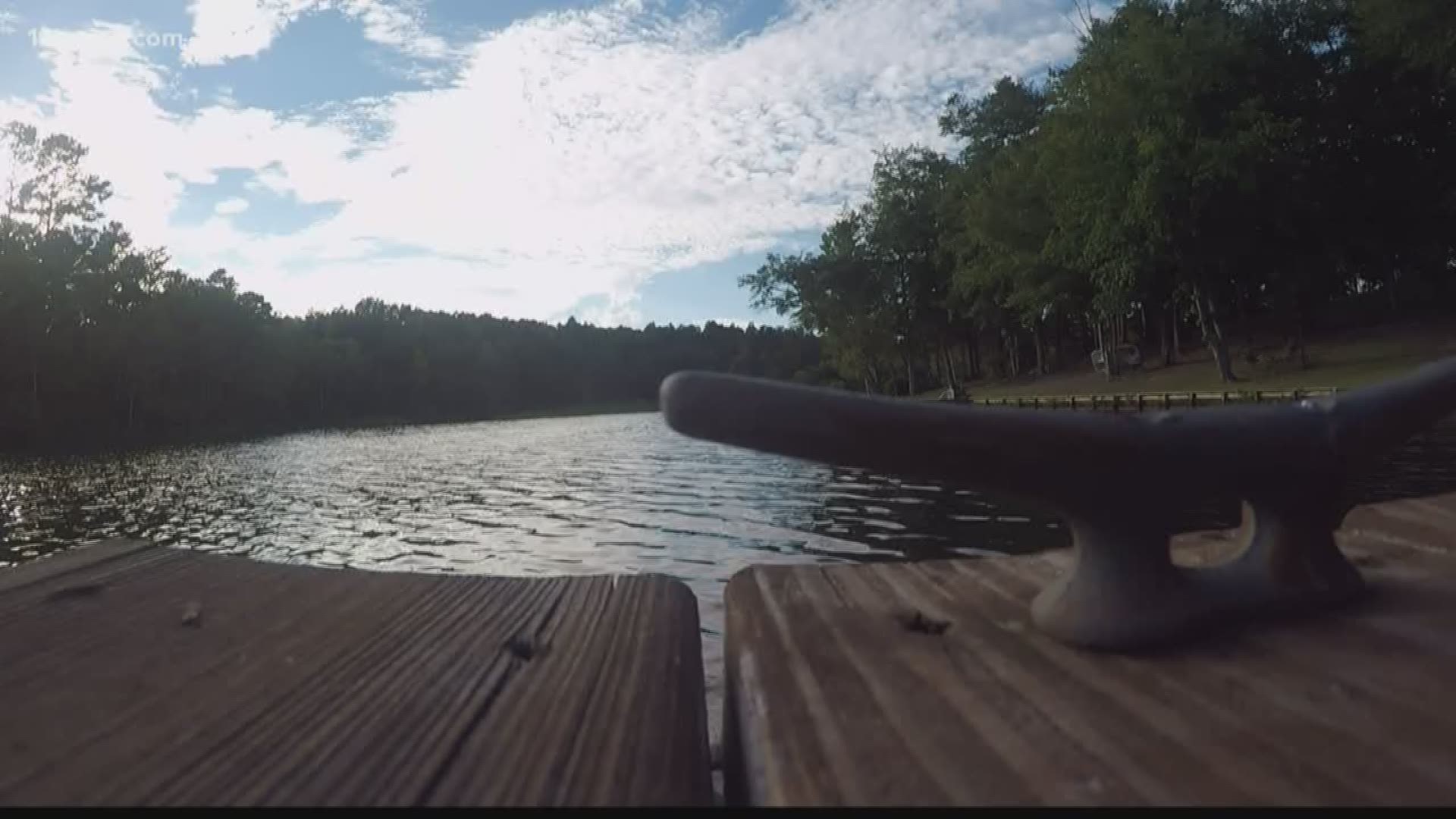Milledgeville — Georgia Power held an open house at Lakeside Baptist Church in Milledgeville on Monday to inform residents on what was being done regarding invasive weed species in Lake Sinclair.
Over the summer, non-native aquatic weeds grew at a fast rate in the lake and caused many residents to worry about the state of their shorelines. Georgia Power spokesman John Kraft said the open house was a means of letting residents on and around the lake to have their voices heard.
"Invite residents in, give them some information, hear their questions, hear what concerns they may have. We have a long-term commitment to this lake and to this community," Kraft said.
One of those worried residents at the open house was Kevin Cunningham. He said hydrilla was making it tough for his grandchildren to move around the water near his dock. Like many people at the meeting, he had a lot of questions.
"Are you going to keep the water level higher which would help this from what we're told? Are you going to take care of the main channels? What channels are you going to take care of?" Cunningham asked.
Georgia Power sent a letter to lake residents detailing what was happening in the lake including the invasive species and its commitment to keeping the lake in good condition.
Kraft said that while they would love to help every resident having issues, the power company is primarily focused on a few areas.
"We have a strategic plan to check, as best we can, to keep the main navigation channels, the public access areas open and the hydropower facility," Kraft said.
The letter explained that if property owners wanted to treat their shorelines that they could apply for an aquatic herbicide treatment permit at no cost, but would have to pay to have a contractor handle their treatment.
The open house had diagrams available detailing the different kinds of native and non-native species in the lake. The invasive species diagrams also described how the weeds arrived in Lake Sinclair and what residents could do to keep them from spreading further. Environmental specialists were also on hand to speak with residents about their specific issues.

